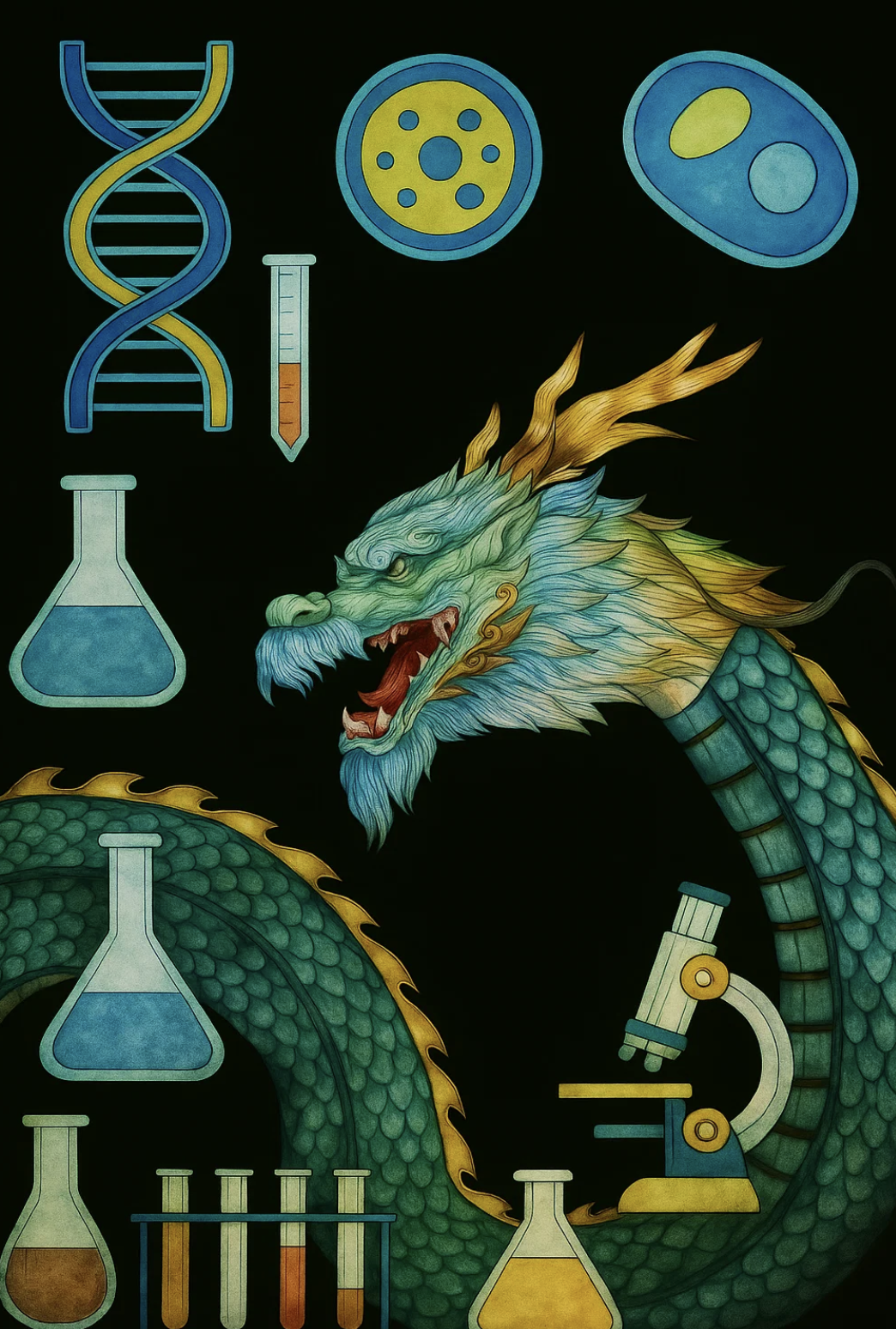Table of Contents
In the world of pharmaceuticals, China might be the new kid on the block, but only a fool would underestimate them. Over the past decade, the nation has transitioned from a manufacturing hub to a biotech powerhouse, shaking up the foundations of the global pharmaceutical industry. As the second-largest developer of new drugs behind the United States, China's rapid rise carries profound implications for healthcare professionals, policy makers, and patients around the world.
Drug Development: China as a New Global Leader
For decades, the pharmaceutical innovation pipeline was dominated by Western companies. Now, the tide is turning. With patent cliffs looming and R&D pipelines running dry, major pharmaceutical firms are looking East.
China has stepped up as a formidable innovator, producing cutting-edge therapies such as antibody-drug conjugates (ADCs), which are redefining cancer treatment. These aren’t cheap knock-offs, they are first-in-class drugs. In 2024 alone, nearly a third of global licensing deals valued at over $50 million involved Chinese firms, reflecting growing international recognition of China’s R&D capabilities.
This surge has been fuelled by major domestic investment and favourable policy shifts. The establishment of the National Medical Products Administration (NMPA) has streamlined regulatory processes, allowing more agile movement from lab bench to bedside.
Changing the Game in Clinical Trials
If drug discovery is the engine of pharmaceutical innovation, clinical trials are the fuel.
Traditionally the slowest and most expensive phase of drug development, clinical trials are now being accelerated by China’s vast patient population, cost efficiency, and government support. According to a 2024 study from Peking University published in Nature Reviews Drug Discovery, the average time to gain approval for initial human trials dropped from 501 to just 87 days.
Such speed, however, doesn’t necessarily imply a compromise on quality. Rather, it reflects an intentional redesign of the clinical trial ecosystem: centralised ethics review boards, digital health records, and massive investment in trial infrastructure are making China one of the most attractive environments for early-stage drug testing.
Strategic Cooperation: The Licensing Model
Despite this progress, few Chinese drugs reach American pharmacies directly. Instead, companies like Akeso license promising therapies to Western firms in exchange for upfront payments and royalties.
Akeso’s Ivonescimab (a potential competitor to Merck’s blockbuster Keytruda) was licensed to US-based Summit Therapeutics for $500 million, with up to $5 billion in milestone payments on the line.
This model benefits both sides.
Western companies gain access to a new drug pipeline without shouldering early development costs. Chinese firms receive capital and international market access. But the success of these partnerships is now shadowed by intensifying geopolitical tensions.
In 2025, proposed tariffs and tightening export controls from both Washington and Beijing have cast doubt on the sustainability of this symbiosis.

China approved 256 new drugs from 2019 to 2023.
The United States approved 243 in that same time.
Source
The Health Silk Road: Soft Power through Medicine
Beyond licensing and innovation, China is also exporting its pharmaceutical prowess through the so-called “Health Silk Road.” A cornerstone of its broader Belt and Road Initiative, this effort has seen China fund healthcare infrastructure across Africa, Asia, and the Middle East, from hospitals in Côte d'Ivoire to pharmaceutical manufacturing in Nigeria.
These projects are more than acts of goodwill. They are strategic tools of soft power, designed to build long-term economic ties and bolster China’s image as a benevolent global health leader. For recipient nations, the influx of affordable drugs and modern facilities is welcome. For the global health community, it raises complex questions about dependency, influence, and standards.
Challenges and Considerations
Despite its meteoric ascent, China’s pharmaceutical sector faces significant hurdles. First, there’s the question of regulatory harmonisation. Many Chinese-developed drugs must still undergo extensive additional trials to meet US, EU and UK standards.
Furthermore, concerns persist about data transparency, patient consent, and the ethical oversight of trials conducted in China. To be a true global leader, China must do more than innovate. It must inspire trust in its systems and standards. That means ensuring quality assurance that holds up to international scrutiny and embracing greater transparency in clinical data reporting.
What Does This Mean for the UK?
For the UK, China’s rise is both an opportunity and a challenge. Access to innovative, cost-effective therapies could ease NHS budget pressures. Strategic collaboration may help UK firms fill gaps in their own pipelines. But there are risks too, particularly in terms of supply chain dependence, regulatory misalignment, and intensifying global competition in generics and biologics.
British firms will need to adapt to this new world order, building agile partnerships and investing in homegrown innovation. Regulators must be ready to assess unfamiliar drug dossiers from unfamiliar markets. And policymakers must carefully balance the benefits of international collaboration with the need for strategic autonomy in health.
In short, the biotech highway, once dominated by the United States, now runs through China. Whether the West speeds alongside, or risks being left in the slipstream, depends on how it chooses to engage.
One thing is clear: Chinese dominance is not just arriving, it’s already here.
Author: Anna de Beer lives in the UK and is reading for an MBBS at Barts and the London School of Medicine and Dentistry. She holds a First Class Honours BSc in Medicine from the University of St Andrews, where she was awarded the Principal's Scholarship for academic excellence.






